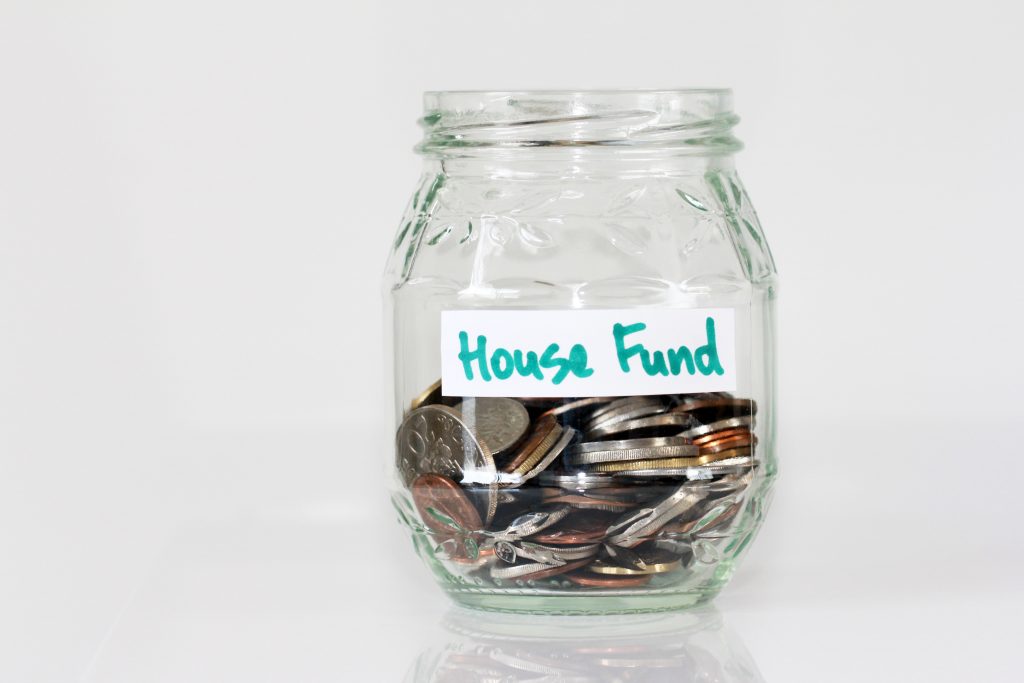How To Save Money For Buying a House
January 20, 2022
When looking at how much houses are today, it’s easy to feel intimidated by the purchase price or the down payment of a home. However, a solid and long-term savings plan can help any individual put enough away for the down payment and all of the other housing costs that come with buying a house.
Before Learning How To Start Saving For a House…
Before you start saving for a house, you must know how much you need to save.
The down payment is the first and the largest cost in the house buying process. Although 20% of the home’s value is the standard and recommended amount as it allows you to avoid the added expense of mortgage insurance, you don’t need to put 20% down. Private mortgage lenders can provide a loan with as little as 3% in down payment. So, let’s say if you are buying a house worth $2,80,000, you need to make only $8,400 in down payment.
Other than down payment, you must consider the closing costs as well when saving for a house. Closing costs can go up to 2-5% of the principal loan amount, which you need to have handy at the time of closing for the house. These closing costs generally include Attorney Fees, Transfer Tax Fees, Loan Origination Fees, and Pest Inspection Fees, to name the major ones.
Read More: All Of The Costs Associated With Buying A Home

15 Ways To Start Saving For a House
Now that you know how much money is needed to purchase the house, it is time to start saving. So take note of these strategies and use them to start saving as soon as you can.
1. Downsize if you have to
Downsizing is a great way to save money to buy a house. By reducing your everyday expenses, you can instead divert those funds to your savings account.
You can move to a more affordable apartment or sell an extra vehicle. To downsize, it’s best to create a list of everything that you have that isn’t a necessity and then you can start deciding what to part with.
2. Create a better budget
You can’t save money if you have no idea where it’s going every week. Make a list of every fee that you are paying for no matter how small. Afterwards, you’ll be able to clearly see where your money is going and how you can cut down on unnecessary payments.
3. Stop bad habits
A bad habit both negatively affects you and is unnecessary to your everyday life. Something as simple as drinking alcohol or smoking may seem like a small weekly expense but if you multiply that weekly expense by 52, it adds up to a hefty amount. The adjustment from your bad habit may take some getting used to but it will benefit you greatly financially.
4. Cancel Automatic Subscriptions
With subscription services running rampant today, it’s typical for the average consumer to have multiple subscriptions that they aren’t keeping track of. One service may be a small cost but multiple could add up to match a cable bill. There are many ways to cut down on subscription fees.
You can take advantage of the free trials and milk them for all their worth. Or, you can use free streaming services exclusively to enjoy entertainment without paying a single fee.
Check out a list of the best free streaming services here.
Look for discounts or deals that subscription services offer. A couple times a year, sometimes around Black Friday, services will offer a huge discount for their monthly fee.
Also, take advantage of bundles. Hulu and Spotify have a subscription bundle for only $9.99/month.
Lastly, make a deal with friends or family where you all share subscription services that way everyone saves money.
5. Skip vacations
Going on vacations and exploring new places can be fun on the holidays. However, it’s also an easy way to spend thousands of dollars. If you’re saving to buy a house, then consider saving that money and spending your holidays enjoying the city you live in. Plan out a spa day, visit historical sites, or try local cooking classes.
6. Request for a raise or look for other employment options
The best way to save more money for a house is to have a higher income. Depending on where you are working, you might want to consider getting another job temporarily to make extra money. Whether it’s through a raise or seeking other employment, a higher income means that extra cash can go to your debt or to your savings account.
7. Cut down debts
If you are looking to purchase a new house, putting more money towards your debt might seem counterintuitive. However, while looking at you as a mortgage candidate, lenders look for a good debt-to-income ratio.
If your debt is more than your income, you are less likely to be favored as a candidate. In other words, it means you might have to pay a lot more interest and be required to pay a higher down payment fee.
You may not be able to save for a house initially, but the amount you’ll have to save will be exponentially less once you improve your debt to income ratio.
8. Start a side hustle
In the era of technology, a side hustle is easier than ever to start. With just a couple of hours on the weekend, you can make hundreds of dollars. Here are a few ideas that can get you started – freelancing through Upwork, driving for a ride-sharing company, cab driving, testing websites and apps, pet sitting or walking, etc.
9. Ask for help from friends and family
There’s no reason to feel ashamed when asking for help when saving for a house. The generosity of human beings may surprise you. Many home buyers use crowdsourcing websites to help raise funds to buy a house.
You can also ask family and friends to replace any gifts for special occasions for money towards your down payment.
10. Rent out a parking space or additional room
Now is when you have to get resourceful in your efforts to save money. Do you have any extra room in your apartment that you don’t use? Do you have a parking space that you can rent out? Renting out either of these spaces can be a great extra stream of income to put towards your fees or to save for a house.
Read More: How Much Should I Charge To Rent A Room In My House?
11. DIY everything
Have a home improvement idea or a problem with the plumbing? Consider taking on these projects yourself to save money for a house. DIY-ing for work around the house along with things you want to buy like a bench can be an amazing way to save money. It will take a lot of work and there might be a huge learning curve, but you’ll be saving a lot more money in the end.
12. Automate your savings
Modern-day banking features allow you to make automatic transfers from your checking account to your savings account. Simply set up your bank account to automatically withdraw a certain amount from your checking account to savings account every month. That way, you will be able to save money without even thinking about it.
13. Ask for discounts
Next time you go out shopping, don’t forget to ask if there are any discounts running. You will never know until you ask, and you should always ask. Even if there are no discounts, you should never underestimate the power of cash and your negotiation skills.
14. Reduce energy costs
By making small tweaks in your lifestyle, such as taking smaller showers, installing dimmer switches and LED bulbs you can save a substantial amount of money in electricity every month. At the same time, replacing your old electrical appliances with energy-efficient appliances can reduce a lot of your energy usage.
15. Sell what you don’t need
Unless you are a minimalist there is probably a lot of stuff that you have but don’t use anymore. Instead of having those items lay around your apartment, try selling those items to make some extra cash. Whether it’s clothes, electronics, or even decorations, people may pay a good amount for something that is useless to you. Like the popular old saying, “One man’s trash is another man’s treasure.”
Judge Your Wants Against Your Needs
The key to saving money is making the distinction between what you want and what you need. By only paying for what you need, you can cut down your expenses immensely and divert those new fund to saving for your new home. Sooner rather than later, you’ll find yourself with enough money for the down payment and then some.
All the best!

